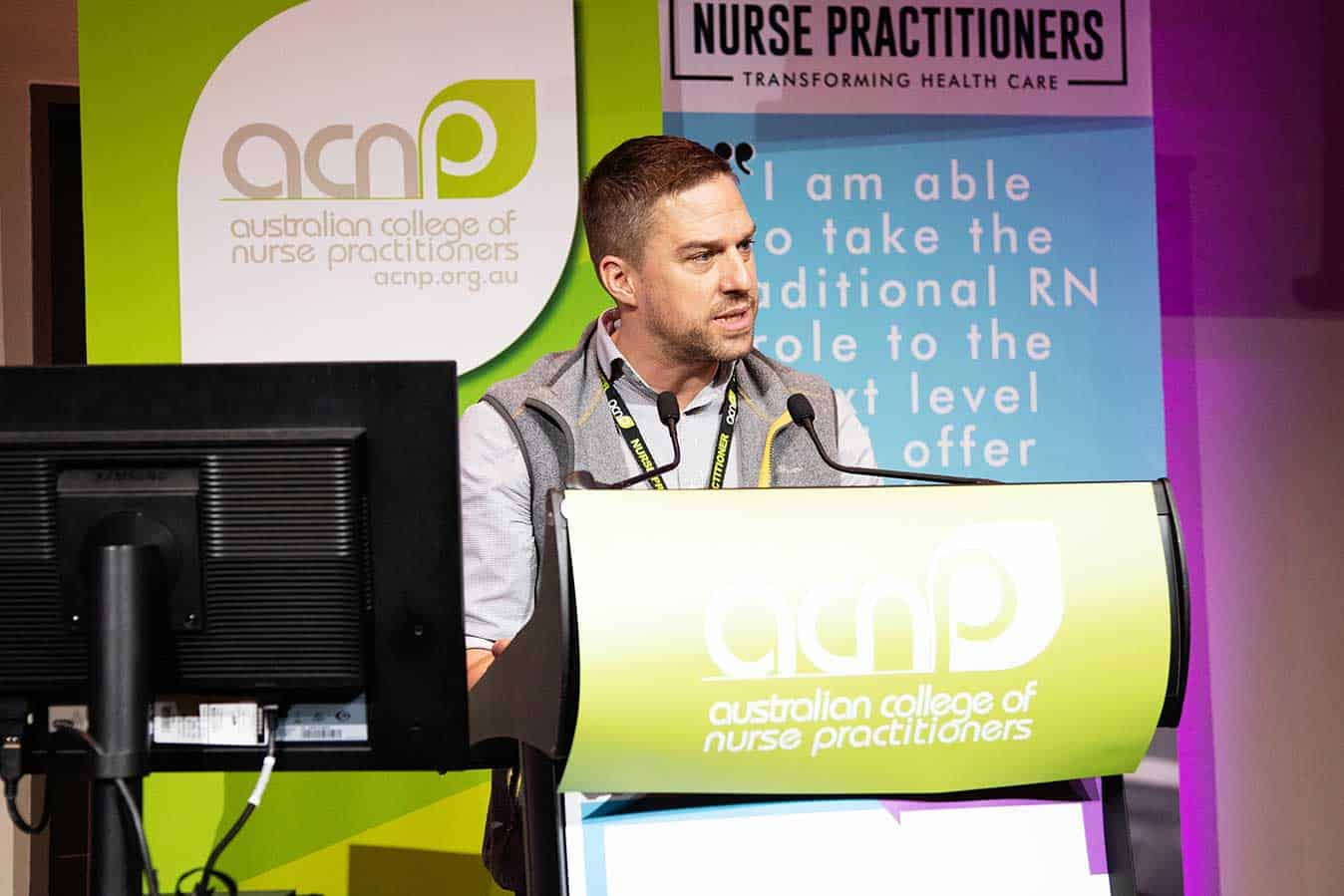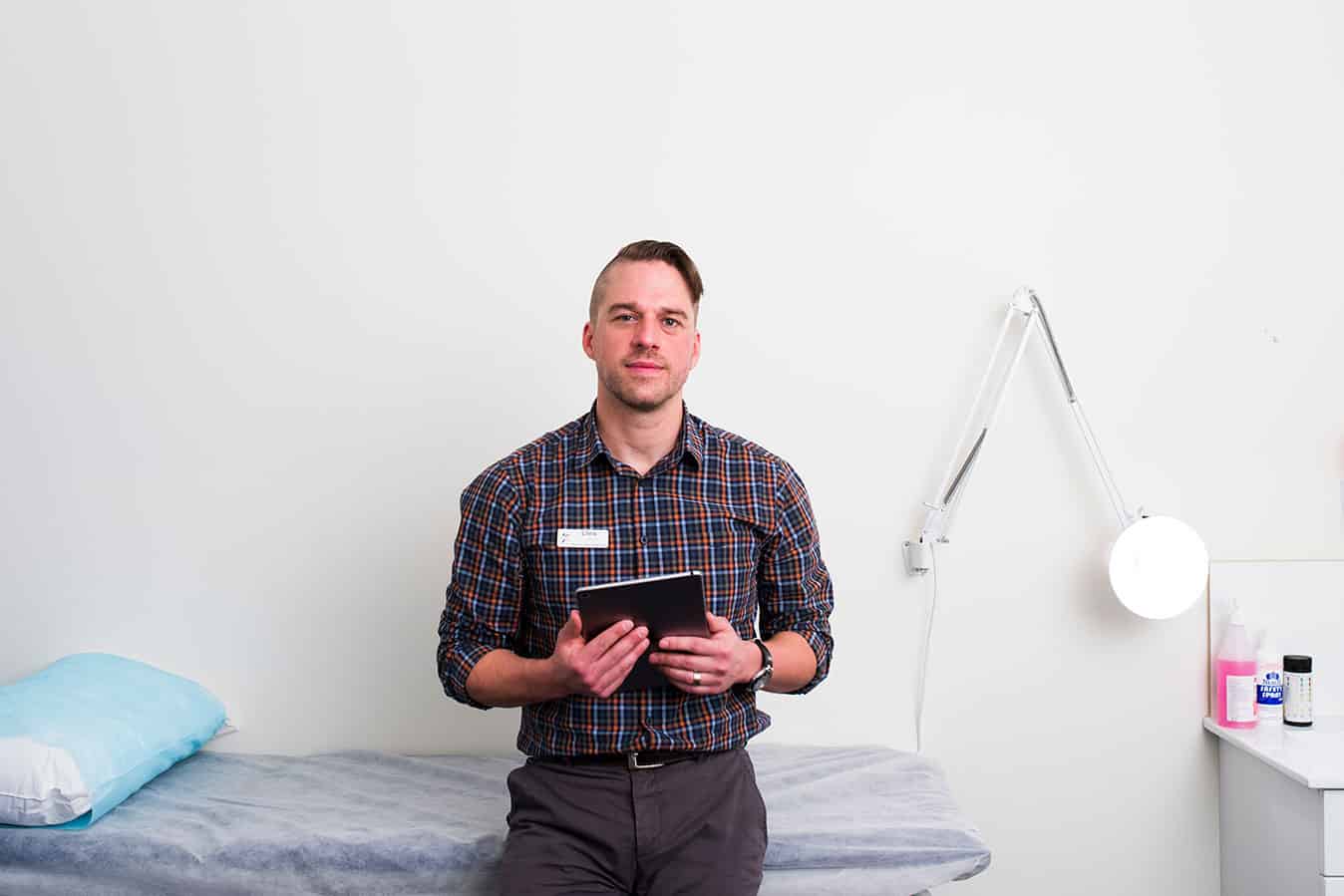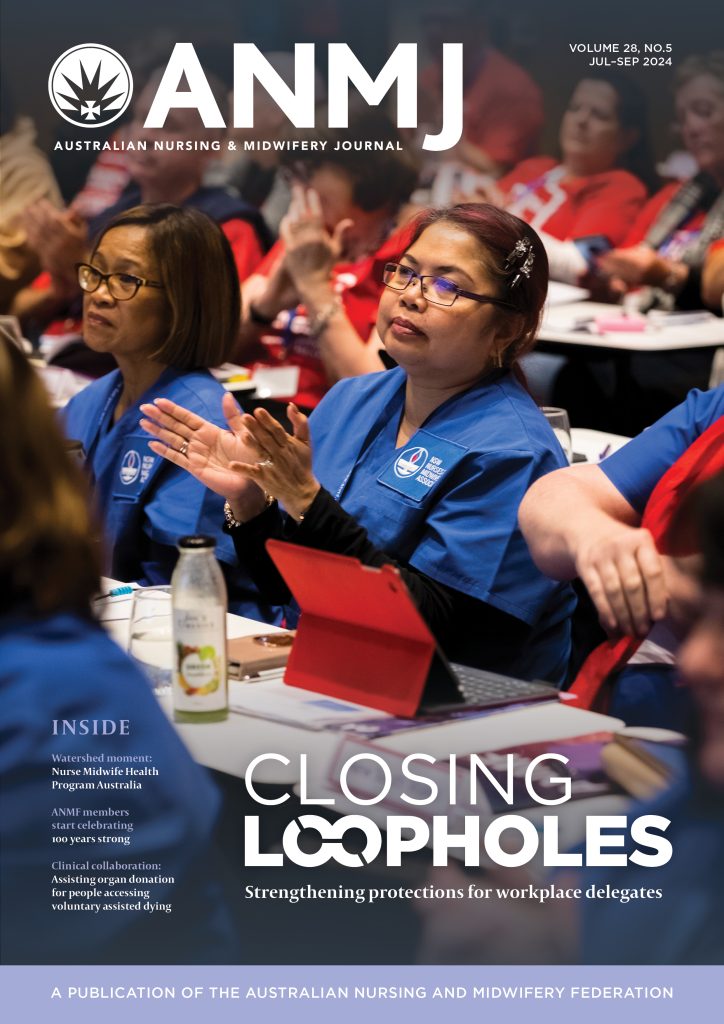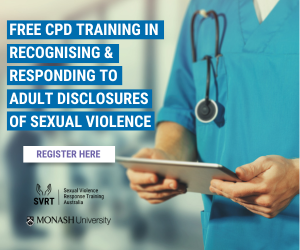In his first few years of university in his native United States, Chris Helms ironically wanted to take on any subjects bar nursing.
His broad areas of study included marine biology, chemistry and Spanish and at one point involved aspiring to undertake medicine in the hope of becoming a doctor.
It eventually led to him studying with an international program focused on community health within the Caribbean.
“I ended up living in the Dominican Republic and Mexico and worked in low-socioeconomic areas teaching the community about sanitation, breast feeding, and HIV/AIDS,” Chris recalls.
“It was a humbling experience and irrevocably changed my life. My upbringing had lent a very “rose-coloured glasses” view of the world and I had never seen abject poverty and other social determinants of health painted so vividly before.”
Chris, whose mother was a paediatric oncology nurse, says the experience made him realise his values were not aligned with the philosophy of medicine.
“Although invaluable, medicine is only a small part of a bigger answer to community health and wellness. So I changed my major to nursing and the rest is history.”
After undertaking formal training as an Adult and Geriatric (Aged Care) Nurse Practitioner (NP) at the University of Wisconsin, Chris worked across diverse healthcare settings, including rural primary healthcare, before immigrating to Australia in 2007.
The Canberra-based NP’s current posts include running his own micropractice as a primary healthcare NP within a pharmacy.
“It’s a convenience care and wellness clinic that offers many of the services you’d get in a general practice,” Chris explains.
“I offer preventative health and wellness-focused care, as well as care for minor illnesses and injuries and most common long-term health conditions.”
On top of this, Chris is also the Course Coordinator for Curtin University’s School of Nursing, Midwifery and Paramedicine, and every fortnight works as an NP in a health clinic helping people experiencing or at risk of homelessness.
“My role there focuses on primary care strategies and attempts to reintegrate people who are marginalised and/or vulnerable back into mainstream healthcare.”
Chris says his primary goal as an NP is to offer patients healthcare choices by showing NPs can be a viable, safe and effective alternative to care offered by GPs.
“I want to demonstrate that by working collaboratively with like-minded medical and allied health professionals whose focus is on providing better patient-centred care, we can introduce cost-savings and efficiencies into the health system,” he argues.
“I’ve established my private practice so that I can change the traditional primary healthcare narrative and demonstrate the unique value-add of the NP role in primary healthcare.”
But despite significant inroads since the first NP was endorsed in Australia 19 years ago, Chris says both health professionals and consumers remain uncertain about what an NP is and what they can do, partly due to undermining from the medical hegemony of GPs and general practices.
“I wanted to do something different and own a primary healthcare clinic – a clinic that’s not focused on who owns it but what its purpose is,” he says.
Earlier this year, Chris was named the Nurse Practitioner of the Year (2019) at the Australian College of Nurse Practitioners annual national conference in Melbourne for his outstanding clinical work leading to patient outcomes, mentoring and professional leadership.

Chris, who counts knowing that he has made a tangible difference in someone’s life through expert nursing practice as the most rewarding part of being an NP, says the advanced practice role demands courage, resilience, intelligence, curiosity, passion and adaptability.
“It was a really special moment for me,” he says of the award.
“I honestly couldn’t have done it without the brilliant mentorship and friendships I’ve been offered since arriving in Australia. I couldn’t have done it without the visionary and courageous nurses and doctors who’ve supported me along the way.
“There are many other nurse practitioners out there who need to have their story told, as there’s some amazing work being done that remains hidden.”
Asked what benefits NPs bring to healthcare, Chris says the role above all helps balance healthcare resourcing and care provision.
NPs working to their full scope of practice can streamline and improve the health system and increase patient satisfaction and engagement in their care, he says.
“There’s an imbalance in the voices that influence healthcare policy, which has resulted in systems inefficiencies, rising healthcare costs and an imperfect system that focuses on the health professional as opposed to the patient,” he suggests.
“We’re expert clinicians who’ve been trained using a nursing philosophy of care. I believe this translates to care that’s centred around the patient’s needs and priorities, with NPs embracing healthcare innovation and facilitating different ways of thinking within healthcare teams.”
Chris says NPs face many challenges and opportunities looking ahead.
He lists nursing struggling to unify its collective voice and patients who choose an NP over a GP being forced to pay higher out of pocket costs among the greatest challenges.
He believes the lack of support for NP education is also problematic.
“Currently, NP students obtain their required 300 hours of supervised supernumerary clinical practice solely through the goodwill of collaborative medical practitioners and nurse practitioners,” Chris says.
“Juxtapose this upon the fact that approximately $50,000 of Commonwealth funding is allocated to a 1st year GP registrar to support their education. There is an imbalance in how the Australian government subsidies clinical education for medical practitioners and nurse practitioners that needs to be addressed – particularly because the responsibility and accountability we carry is the same.”
Chris suggests NPs must capitalise on belonging to a health workforce of 400,000 strong nurses.
“If we unify our voices we will achieve truly transformative healthcare,” he says.
“With respect to the NP role, I believe the future of the role hinges on acceptance of the recommendations proposed by the NP Reference Group of the MBS Review Taskforce. Those recommendations will ensure that NPs have the required tools to work efficiently and effectively within their roles, and will facilitate innovation in the primary healthcare space.”
Chris is adamant that the future of the NP role rests in primary healthcare where it can make its greatest impact by filling gaps in care.
His advice for the next generation of NPs is to embrace learning and new challenges.
“Challenge yourself to learn something new every day that constantly expands your knowledge, skills and expertise,” he says.
“If you’re a diabetes nurse then expand your knowledge into other endocrine disorders, and those disorders commonly seen in diabetes such as hypertension and dyslipidaemia. If you’re a cardiovascular nurse then expand your knowledge into mental health and endocrine disorders relevant to your specialty area, for example, thyroid disease and depression. If you feel you’ve seen it all then it’s time to move on.”









